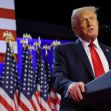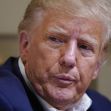A historic quandary will face the nation on January 21, 2021, as one president leaves office and another begins his own four-year term. Unlike previous departing presidents, however, Donald Trump will turn back into a private citizen while facing a mountain of legal battles that not only had been put on hold during his tenure as the President of the United States but also bloomed under his term.
On the heels of President Trump’s baseless voting allegations of fraud as shared on Twitter as well as in numerous, failed lawsuits, the ascension of President Biden may be a welcome respite to many from the daily social media tirades emanating from the White House. But in the private offices of the soon-to-be-former president’s lawyers, the long list of potential criminal actions will surely keep them working overtime for months to come.
In 2016, President Trump famously said, “I could safely stand in the middle of 5th Avenue and shoot somebody and wouldn’t lose any voters,” referring either to the loyalty of his base or the deep protections presidents enjoy while in office. During his office, Trump seemed to revel in being held exempt while serving as President of the United States.
But on January 21, 2020, any legal liabilities he may have ducked will be fair game in our legal system. There is a very long list of infractions President Trump has been accused of currently, both in business and as a citizen via civil lawsuits. And, if President Biden chooses, there may be new charges stemming from Trump’s end-of-term actions, including violations of the Hatch Act.
President Trump is no stranger to litigation. He is already facing or has faced lawsuits for his work as a private citizen. He is also connected to numerous campaign lawsuits where his closest advisors ended up in jail.
Many of his closest allies are now ex-cons. From Michael Cohen, who served time for illegal campaign-finance and tax evasion to long-time pal Roger Stone, who was convicted of seven felony crimes for making false statements, witness tampering and obstruction. And, though Stone’s case was connected to the alleged Russia collusion to help Trump win in 2016, that didn’t stop the president from commuting his friend’s prison sentence. Then there is Paul Manafort, Trump’s former Campaign Manager, who was convicted and sentenced to four years for financial fraud and collusion with the Russian government in 2016.
New potential lawsuits may include, in part:
Tax Fraud
There is a five-year statute of limitations for financial Tax Fraud. Over the past few years, Trump avoided paying taxes to such a deep level that he may have committed tax fraud. After reading his tax data, The New York Times shared shocking data, such as haircuts costing $70,000 as a business expense for his work on The Apprentice; his $72.9 million tax refund for a defunct, empty Atlantic City casino deal; possible property fraud regarding specific easements that were overstated for his benefit; personal property allegedly classified as investment holdings and much more.
Though state tax fraud is often more forgiving for defendants, the Atlantic City alleged tax fraud may lead to the IRS, if the facts warrant it. The federal government has often gone after very public, high-profile people in order to make a strong point to the general population. However, with about 70 million Trump fans in the US, the entire alleged fraud may become polarized and put aside as a civil case.
Separation of Business and State While President
Though President Trump did not completely separate himself from his businesses but instead formed a trust, he still may face legal woes for his businesses benefiting from the presidency. He spent over $1,300,000 combined for his inauguration and after-parties for his family at his own hotel in Washington, DC.
Campaign Finance Fraud
Once he is not the president, Trump may endure similar federal charges as his convicted campaign associates Manafort, Stone and Cohen.
During his term, the president was protected as a sitting president when Cohen testified in federal court that Trump had told him to create and pay “hush money.” In court papers, this co-conspirator’s name was left anonymous. However, Cohen has already offered copies of the canceled checks from Trump to the investigators.
This “hush money” to both Stormy Daniels and Karen McDougal totaled more than $25,000 each and may trigger an indictment for Trump, especially because they are considered felonies.
Obstruction of Justice (Russia)
When the F.B.I. announced its investigation into Trump’s campaign’s relationship with Russia, Trump used his power to squash the investigation, asked former FBI Director James Comey to publicly announce he was not the focus of an investigation and also tried to fire Robert Mueller via his own counsel, Donald McGahn.
Mueller went on to produce two volumes of data and included evidence that constituted “potentially obstructive acts” allegedly incurred by the president.
Violation of The Hatch Act
The Hatch Act includes actions from which a president cannot be made exempt, and one obvious application that may be used against President Trump involves using the presidency to influence a federal election.
There is a strong case to be said for President Trump’s publicly abusing his power in the Executive Branch in order to win the election. He hosted campaign events on the White House lawn and called for the arrest of his opponent Biden in the race on Fox TV, saying the attorney general (William Barr) would be remembered for “a very sad, sad situation” if he did not indict Democrats such as Biden and former President Barack Obama.
With the new year, President-Elect Joe Biden has promised a new harmony and a time to heal.
But as a nation heals, prosecutors will have plenty of grounds to decide if they should indict Trump for any number of activities, including his claims of a fraudulent election, which may be his most obvious violation of the Hatch Act.
Perhaps Harvard Law Professor Nicholas Stephanopoulos summed up the turmoil created by a defeated Trump best.“There was a real risk in the election of the country degenerating into a soft totalitarianism,” noted Stephanopoulos.
As per indictments, 2021 may be a very busy year for Trump.






